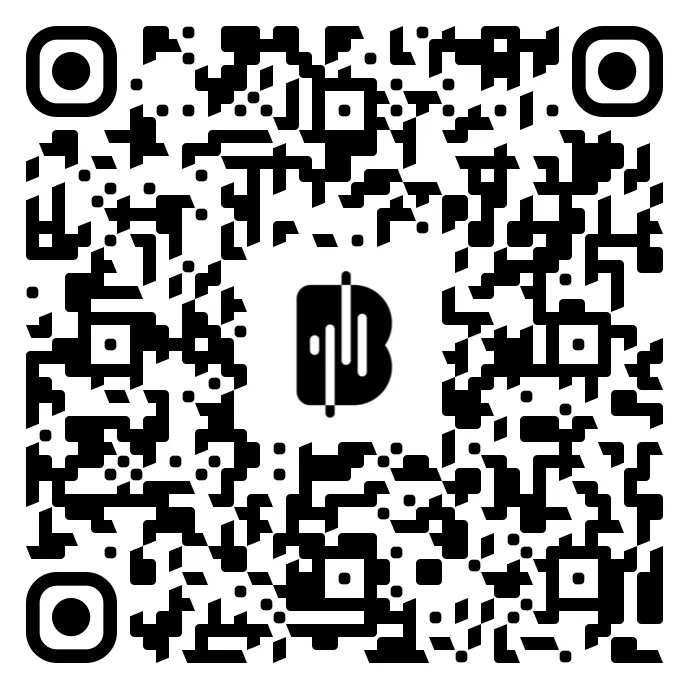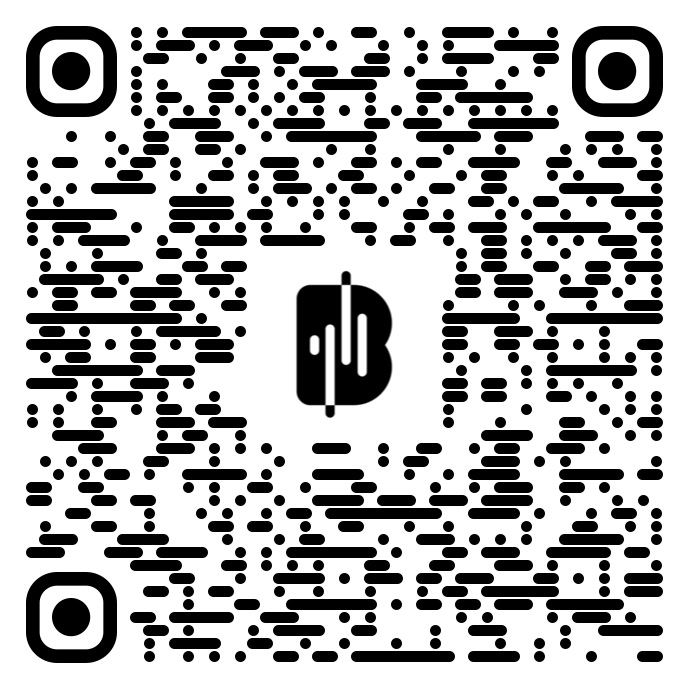Learning a new language is an adventure filled with thrilling discoveries and, yes, a few tricky spots along the way. For Turkish speakers setting their sights on English , some words can feel like real tongue-twisters , demanding a good ear for sounds, a feel for emphasis, and a knack for those subtle pronunciations.
So, let's dive into 25 English words that often trip up Turkish speakers. We'll explore why they're challenging, point out common mistakes, and give you some practical advice to conquer them.
Whether you're just curious about language, hitting the books as a student, or aiming for smoother communication in your career, come along as we unravel the pronunciation puzzles these words present for native Turkish speakers – and help you nail them!
1. Acai /ˈɑː.saɪ.iː/ Definition: A small, dark purple fruit from a type of palm tree, native to Central and South America.
Pronunciation Challenges for Turkish Speakers: The vowel sounds in "acai" can be tricky, particularly the initial open "a" sound and the final long "ee" sound, as Turkish vowels may not have exact equivalents. Turkish speakers might also pronounce the "c" with a hard /k/ sound.
Mouth/Tongue Positioning: Begin with an open "ah" sound, transition smoothly to the "sigh" sound with a slightly closed mouth, and finish with the short and subtle "ee" sound.
Tips for Improvement: Practice the transition between sounds, focusing on maintaining a smooth flow without emphasizing any particular part of the word. Be sure to pronounce a soft /s/-like "c," rather than a hard /k/ sound.
2. Albeit /ɔːlˈbiː.ɪt/ Definition: Although; even if.
Pronunciation Challenges for Turkish Speakers: The initial vowel diphthong /ɔːl/ and the short "i" in the second syllable can be challenging. Turkish speakers might simplify the vowel sounds or place stress incorrectly.
Mouth/Tongue Positioning: Emphasize the "awl" sound with an open mouth, then transition quickly to the "bee-it" with a closed mouth for the "ee" sound.
Tips for Improvement: Break the word into syllables and practice each part separately before combining them. Concentrate on the correct positioning for each sound.
3. Athlete /ˈæθ.liːt/ Definition: A person who is proficient in sports and other forms of physical exercise.
Pronunciation Challenges for Turkish Speakers: The initial consonant cluster /θl/ is not common in Turkish and can be difficult to pronounce smoothly. Turkish speakers might insert a vowel sound between the consonants.
Mouth/Tongue Positioning: Pronounce the "ath" sound with an open mouth, and smoothly transition to the "leet" sound with a slightly closed mouth for the "ee" sound. The tongue tip should be between the teeth for the /θ/ sound.
Tips for Improvement: Focus on the correct mouth positioning for the "ath" and "leet" sounds. Avoid adding an extra syllable in the middle; “athlete” should be a two-syllable word.
4. Boutique /buːˈtiːk/ Definition: A small shop that sells fashionable and unique items, often specialized in a particular type of merchandise.
Pronunciation Challenges for Turkish Speakers: The stress pattern on the second syllable and the final long "ee" sound can be challenging. Turkish speakers might stress the first syllable.
Mouth/Tongue Positioning: Begin with the short "boo" sound, then transition quickly to the "teek" sound with a slightly closed mouth for the "ee" sound.
Tips for Improvement: Pay attention to the stress on the second syllable. Consider practicing in front of a mirror to perfect the nuances of the mouth and tongue positioning required.
5. Business /ˈbɪz.nəs/ Definition: The organized effort of individuals to produce and sell goods and services for profit.
Pronunciation Challenges for Turkish Speakers: The short "i" and "u" vowel sounds, as well as the final /s/ sound, can be difficult. Turkish speakers might pronounce the vowels differently or add an extra vowel.
Mouth/Tongue Positioning: Emphasize the "biz" sound with an open mouth, and keep the "nuhs" short with a slightly closed mouth for the "uh" sound.
Tips for Improvement: Practice saying the word in different contexts, focusing on the correct mouth positioning for the initial and final sounds. Avoid adding an additional syllable in the middle of the word.
Take your free accent assessment Get to know your pronunciation level and get 7 days of lessons for free on the BoldVoice app.
Start Free Trial
6. Cache /kæʃ/ Definition: A hidden store of goods or valuables.
Pronunciation Challenges for Turkish Speakers: The short "a" vowel and the final /ʃ/ sound might be challenging, as Turkish doesn't have the exact equivalent of the English short "a."
For an example of that /ʃ/ sound, watch this clip of BoldVoice Coach Ron demonstrating the sound:
VIDEO
Mouth/Tongue Positioning: Pronounce the "k" sound with the tongue against the back of the roof of the mouth, followed by a short, open "a" sound and a sharp "sh" sound (tongue raised towards the roof of the mouth, but not touching).
Tips for Improvement: Practice the correct mouth and tongue positioning for the initial /k/ and final /ʃ/ sounds, ensuring a concise and accurate pronunciation. Record yourself practicing to pinpoint areas for improvement and to document your progress.
7. Chaos /ˈkeɪ.ɒs/ Definition: Complete disorder and confusion.
Pronunciation Challenges for Turkish Speakers: The initial "ch" sound pronounced as /k/ and the diphthong /eɪ/ can be confusing, as "ch" usually corresponds to a different sound in Turkish.
Mouth/Tongue Positioning: Emphasize the "kay" sound with an open mouth and transition smoothly to the "oss" sound with a closed mouth for the short "o" sound.
Tips for Improvement: Pay attention to the correct mouth positioning for the "key" and "os" sounds. Avoid mispronouncing the initial “ch” as in “chair” - it should instead be pronounced with a /k/ sound.
8. Debris /dəˈbriː/ Definition: Scattered fragments, typically of something wrecked or destroyed.
Pronunciation Challenges for Turkish Speakers: The stress on the second syllable and the final long "ee" sound can be difficult, as Turkish typically stresses the first syllable. The silent "s" can also be overlooked.
Mouth/Tongue Positioning: Pronounce the "deb" sound with an open mouth, followed by a short, closed "ree" sound.
Tips for Improvement: Repeat this word, starting slowly and increasing speed as you become more comfortable. Note that the final “s” is silent and shouldn’t be pronounced.
9. Film /fɪlm/ Definition: A thin layer or coating, or a movie.
Pronunciation Challenges for Turkish Speakers: The short "i" vowel and the final /lm/ consonant cluster can be challenging. Turkish speakers might insert a vowel between the consonants.
Mouth/Tongue Positioning: Pronounce the "f" sound with the upper teeth against the lower lip, followed by a short, open "i" sound and a quick "l" sound (tongue tip touches the alveolar ridge).
Tips for Improvement: Practice the clear pronunciation of the /f/ and /l/ sounds, ensuring a smooth transition between them. Build sentences featuring these sounds to gain practice in various contexts.
10. Ingenuity /ˌɪn.dʒəˈnjuː.ə.ti/ Definition: Cleverness, inventiveness.
Pronunciation Challenges for Turkish Speakers: The stress pattern, the /dʒ/ sound, and the vowel sounds can all pose difficulties. Turkish speakers might misplace the stress or pronounce the vowels differently.
Mouth/Tongue Positioning: Emphasize the "in-juh" sounds with an open mouth, followed by a quick transition to the "noo-it-ee" with a closed mouth for the "oo" sound. The /dʒ/ sound is made by stopping the airflow with the tongue behind the alveolar ridge and then releasing it with friction.
Tips for Improvement: Break down the word into syllables and practice each part separately. Avoid inserting a “w” sound after the “n”, and be sure to place the stress on the “u”: ingenUity.
11. Itinerary /aɪˈtɪn.ə.rer.i/ Definition: A planned route or journey.
Pronunciation Challenges for Turkish Speakers: The initial diphthong /aɪ/, the stress on the second syllable, and the schwa sound /ə/ can be challenging.
Mouth/Tongue Positioning: Pronounce the "ahy" sound with an open mouth, followed by the clear "tin-uh-rer-ee" sounds.
Tips for Improvement: Practice the correct mouth positioning for the "ai" and the subsequent syllables, maintaining a smooth flow throughout. Each syllable should flow into the next - this can be improved by maintaining a consistent beat by tapping your foot or clapping your hands as you practice your pronunciation.
12. Library /ˈlaɪ.brer.i/ Definition: A building or room containing a collection of books.
Pronunciation Challenges for Turkish Speakers: The initial diphthong /aɪ/ and the /br/ consonant cluster can be difficult. Turkish speakers might simplify the cluster by inserting a vowel.
Mouth/Tongue Positioning: Emphasize the "lahy" sounds with an open mouth, followed by the quick transition to the "brair-ee" with a closed mouth for the "ee" sound. For /br/, the lips are rounded for /b/ and then quickly open for /r/ with the tongue tip raised.
Tips for Improvement: Listen to native speakers pronounce this word with a General American accent and mimic their pronunciation. Place the stress on the first syllable: LIbrary.
13. Mischievous /ˈmɪs.tʃɪ.vəs/ Definition: Playfully causing mischief or trouble.
Pronunciation Challenges for Turkish Speakers: The /tʃ/ sound and the number of syllables can be challenging. Turkish speakers might add an extra syllable or mispronounce the /tʃ/ sound.
Mouth/Tongue Positioning: Pronounce the "mis-chuh" sounds with an open mouth, followed by the quick transition to the "vuh-s" with a closed mouth for the "uh" sound. The /tʃ/ sound is made by stopping the airflow with the tongue behind the alveolar ridge and then releasing it with friction.
Watch as BoldVoice Coach Ron demonstrates that "ch" sound:
VIDEO
Tips for Improvement: Avoid adding additional syllables to the word. A common pronunciation error (even among native speakers) is to pronounce the word as “mis-cheev-ee-uhs” rather than the correct pronunciation “mis-chuh-vuhs.”
14. Niche /niːʃ/ Definition: A specialized segment of the market for a particular kind of product or service.
Pronunciation Challenges for Turkish Speakers: The "ch" pronounced as /ʃ/ is not intuitive for Turkish speakers, as "ch" typically corresponds to a different sound. The long "ee" sound is also important.
Mouth/Tongue Positioning: Pronounce the "nee" sound with an open mouth, followed by the quick and concise "sh" sound (tongue raised towards the roof of the mouth, but not touching).
Tips for Improvement: Remember that the “ch” in “niche” should be pronounced as a /ʃ/ sound, rather than the harder /tʃ/ sound as in the word “cheese.”
15. Nuclear /ˈnjuː.kli.ər/ Definition: Relating to the nucleus of an atom or the use of nuclear energy.
Pronunciation Challenges for Turkish Speakers: The initial /nj/ consonant cluster and the vowel sounds can be tricky. Turkish speakers might pronounce it as "nook-yoo-lar."
Mouth/Tongue Positioning: Pronounce the "noo" sound with an open mouth, followed by the clear "klee-ur" sounds. Allow the “klee” to flow smoothly into the “ur.”
Tips for Improvement: Emphasize the first syllable: “NUclear.” Be aware that despite the spelling, “nuclear” does not rhyme with “clear.”
16. Probably /ˈprɒb.ə.bli/ Definition: Almost certainly; very likely.
Pronunciation Challenges for Turkish Speakers: The initial consonant cluster /pr/ and the schwa sound /ə/ can be challenging. Turkish speakers might insert a vowel or mispronounce the schwa.
Mouth/Tongue Positioning: Emphasize the "praw" sound with an open mouth and the primary stress, followed by the clear "buh-blee" sounds. For /pr/, the lips are rounded for /p/ and then quickly open for /r/ with the tongue tip raised.
Tips for Improvement: Practice the transition between the "praw" and "buh-blee" sounds, avoiding the tendency to blend them together. Maintain three clear syllables, without skipping the second “buh” syllable.
17. Quinoa /ˈkiːn.wɑː/ Definition: A grain-like crop native to South America, often used as a food source.
Pronunciation Challenges for Turkish Speakers: The initial /kw/ sound and the vowel sounds can be difficult. Turkish speakers might pronounce the "q" as /k/ followed by a separate "oo" sound.
Mouth/Tongue Positioning: Pronounce the "keen" sound with an open mouth, followed by the clear "waa" sound. Although the emphasis is on the first syllable, the trailing “waa” should have a clear, open vowel. The /w/ sound requires rounded lips.
Tips for Improvement: Pay attention to the correct mouth positioning for the "keen" and "waa" sounds, avoiding the common mispronunciations of "keen-oh-waa" or “kwin-oh-waa.”
18. Quote /kwoʊt/ Definition: Repeat or copy out (a group of words from a text or speech), typically with an indication that one is not the original author or speaker.
Pronunciation Challenges for Turkish Speakers: The initial /kw/ consonant cluster and the diphthong /oʊ/ can be challenging. Turkish speakers might pronounce it as "coat."
Mouth/Tongue Positioning: Pronounce the "kwoht" sound with a quick "oht" sound. The /w/ sound requires rounded lips.
Tips for Improvement: Focus on the correct pronunciation of the /kw/ and /oʊ/ sounds, avoiding the tendency to pronounce it as "coat." Practice the unusual initial /kw/ sound with words like “queen” or “quilt,” and note that “quote” should rhyme with “wrote.”
19. Salmon /ˈsæm.ən/ Definition: A large, edible fish that is a popular choice in cooking.
Pronunciation Challenges for Turkish Speakers: The silent "l" can be confusing, as Turkish is generally phonetic. The short "a" vowel might also be challenging.
Mouth/Tongue Positioning: Pronounce the "sam" sound with an open mouth and with the primary stress, followed by the "uhn" sound.
Tips for Improvement: Avoid pronouncing the middle “l” ; it should be silent.
20. Stomach /ˈstʌm.ək/ Definition: The internal organ in which the first part of digestion occurs.
Pronunciation Challenges for Turkish Speakers: The initial consonant cluster /st/ and the short "u" vowel can be difficult. Turkish speakers might insert a vowel or pronounce the "ch" as in "chair."
Mouth/Tongue Positioning: Keep the teeth together and the tongue just behind the teeth to produce the “st” sound. Bring your tongue toward the back of the mouth to correctly pronounce the final /k/ sound.
Tips for Improvement: Focus on the correct mouth positioning for the "stuh" and "muhk" sounds, avoiding the mispronunciation of "stoh-match."
21. Subtle /ˈsʌt.əl/ Definition: Not immediately obvious or noticeable; elusive.
Pronunciation Challenges for Turkish Speakers: The silent "b" and the "t" pronounced as /d/ can be confusing. The final /l/ sound is also important.
Mouth/Tongue Positioning: Pronounce the /d/ sound as a quick almost flap-like sound (tongue flicks against the alveolar ridge), before quickly blending it into the following /l/ sound (tongue tip touches the alveolar ridge).
Tips for Improvement: Note that the “t” is pronounced as a “d,” and the “b” is silent. “Subtle” should rhyme with “cuddle” in the General American accent.
22. Supposedly /səˈpoʊ.zɪd.li/ Definition: According to what is generally assumed or believed.
Pronunciation Challenges for Turkish Speakers: The stress pattern, the schwa sound, and the /z/ sound can be challenging. Turkish speakers might misplace the stress or pronounce the /z/ as /s/.
Mouth/Tongue Positioning: Keep a rounded mouth to correctly pronounce the “pohs” section of the word, before pulling the lips outward for the final “lee” sound. The /z/ sound is produced with vocal cord vibration, similar to /s/ but with the voice on.
Tips for Improvement: Pay attention to the correct mouth positioning for each part of the word, avoiding the mispronunciation of "su-pos-ab-lee." Practice in front of a mirror and record your practice to ensure you don’t mistakenly insert a “b” sound.
23. Turquoise /ˈtɜːr.kwɔɪz/ Definition: A blue-green mineral often used as a gemstone.
Pronunciation Challenges for Turkish Speakers: The initial /tɜːr/ sound and the diphthong /ɔɪ/ can be difficult. The /kw/ consonant cluster also requires specific mouth positioning.
Mouth/Tongue Positioning: Pronounce the "kwoiz” as a clear diphthong, with your mouth rounded for the initial /w/. The /ɜːr/ sound requires the tongue to be bunched in the middle of the mouth.
Tips for Improvement: Practice the /rkw/ consonant cluster sound independently until you’re comfortable with it, before practicing the word as a whole.
24. Wednesday /ˈwɛnz.deɪ/ Definition: The fourth day of the week, following Tuesday and preceding Thursday.
Pronunciation Challenges for Turkish Speakers: The silent "d" and the consonant cluster /nz/ can be challenging. Turkish speakers might pronounce the "d" or insert a vowel.
Mouth/Tongue Positioning: Pronounce the "wenz" sound with an open mouth, followed by the clear "dei" sound.
Tips for Improvement: Practice the clear pronunciation of the "wenz" and "dei" sounds, avoiding the mispronunciation of "wehd-nez-dei." Note
25. Vehicle /ˈviː.ə.kəl/ Definition: A thing used for transporting people or goods, especially on land, such as a car, truck, or bus.
Pronunciation Challenges for Turkish Speakers: The sequence of vowel sounds, particularly the transition from the long "ee" to the schwa and then the short "u," can be tricky. Turkish speakers might simplify the vowel sounds or misplace the stress. The initial "v" sound, while present in Turkish, might not always be produced with the same labiodental precision as in English.
Mouth/Tongue Positioning: Begin with the "vee" sound, keeping your lips slightly spread. Then, relax your mouth for the schwa sound "uh," and finally, form a slight rounding of the lips for the short "ul" sound. The "v" sound is made with your upper teeth lightly touching your lower lip, and air pushed through.
Tips for Improvement: Practice saying the word slowly, focusing on each vowel sound individually before blending them together. Pay attention to the stress on the first syllable. Record yourself and compare your pronunciation to that of a native speaker.
Enhance Pronunciation with BoldBoice Mastering the nuances of American English pronunciation can significantly boost your confidence and open up new avenues in both your personal and professional life. While these 25 words represent some common hurdles for Turkish speakers, remember that consistent practice and the right tools can make all the difference.
The BoldVoice app offers a powerful and personalized approach to refining your accent, focusing on the specific sounds and patterns that often present challenges. By providing targeted exercises and feedback, BoldVoice empowers you to speak with greater clarity and assurance. Ready to take your American English pronunciation to the next level?
Download BoldVoice today for a free 7-day trial and start your journey towards confident and clear communication!









